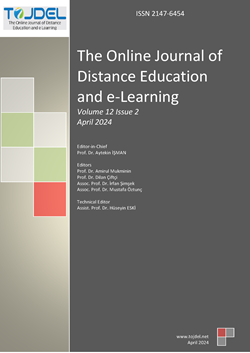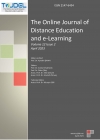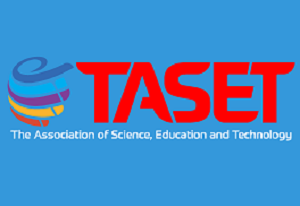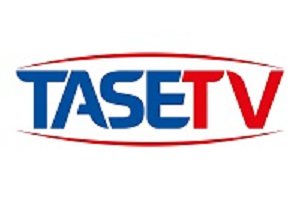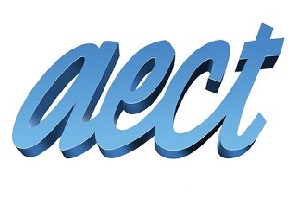TOJDEL - Volume 12 - Issue 2 - April 2024
 EDUCATIONAL EQUALITY: DISTANCE LEARNING'S CONTRIBUTION TO ACCESSIBLE EDUCATION IN INDIA
EDUCATIONAL EQUALITY: DISTANCE LEARNING'S CONTRIBUTION TO ACCESSIBLE EDUCATION IN INDIA Gedam Kamalakar
Abstract:
In the rapidly evolving landscape of education, the advent of distance learning has emerged as a transformative force, especially in a diverse and populous country like India. This paper explores the role of distance learning in promoting educational equality and accessibility across various demographics in India. As the world grapples with the challenges of traditional education, exacerbated by factors such as geographical constraints, socioeconomic disparities, and the recent global health crisis, distance learning has emerged as a viable solution. The study delves into the impact of distance learning on breaking down barriers to education, emphasizing its ability to reach learners in remote and underserved regions. Through the analysis of existing literature, case studies, and statistical data, this paper seeks to highlight the success stories and challenges faced in implementing distance learning initiatives in India. The examination of government policies, technological infrastructure, and sociocultural factors provides a comprehensive understanding of the evolving educational landscape. Furthermore, the paper addresses the potential of distance learning in fostering inclusivity by accommodating diverse learning styles and individual paces. It explores the role of technology in enhancing the quality of education and overcoming traditional constraints, thereby contributing to a more equitable educational system. The study also investigates the evolving role of educators in the digital era, emphasizing the need for pedagogical innovation and professional development to ensure effective distance learning experiences. In this paper synthesizes the current state of distance learning in India and its impact on educational equality. It offers insights into the opportunities and challenges posed by this educational paradigm shift and proposes recommendations for further integration and improvement. By understanding the nuances of distance learning's contribution to accessible education in India, policymakers, educators, and stakeholders can collaboratively work towards creating a more inclusive and equitable educational system for the diverse population of the country.
 EMOTIONAL INTELLIGENCE AND TEACHER EFFECTIVENESS: A CORRELATIONAL STUDY
EMOTIONAL INTELLIGENCE AND TEACHER EFFECTIVENESS: A CORRELATIONAL STUDY Thokchom Somiya Devi, Keisham Shitaljit Singh
Abstract:
Numerous studies on the relationship between emotional intelligence and teacher effectiveness have been done in light of the growing demand for emotional intelligence in the educational setting. Studies have shown how important emotional intelligence is to improving teaching and learning effectiveness. This study has highlighted emotional intelligence and teacher effectiveness among higher secondary school teachers in Thoubal district, Manipur. It has also explored the relationship between emotional intelligence and teacher effectiveness. For this study, the sample of 236 higher secondary school teachers, 129 men and 107 women, was chosen using a stratified random sampling technique. Data were gathered using two questionnaires: the Emotional Intelligence Scale (EIS), developed by Anukool Hyde, Upinder Dhar, and Sanjyot Pethe and the Teacher Effectiveness Scale (TES-KU), developed by Dr. Umme Kulsum. The data were analyzed using statistical methods such as mean, graph and Pearson's product-moment correlation. The study's findings revealed that the higher secondary school teachers in the Thoubal district had the highest level of emotional intelligence and the most effective teachers. It has also shown a positive and significant relationship between emotional intelligence and teacher effectiveness.
 EXAMINING THE IMPACT OF SOCIAL MEDIA PLATFORMS ON THE PROFESSIONAL DEVELOPMENT OF EDUCATORS
EXAMINING THE IMPACT OF SOCIAL MEDIA PLATFORMS ON THE PROFESSIONAL DEVELOPMENT OF EDUCATORS Shyamali Mondal, Manohar Kumar Das
Abstract:
This considers points to examine the part of social media stages in encouraging the professional advancement of educators. In later a long time, social media has gotten to be a necessarily part of communication and information-sharing, giving educators with modern opportunities for collaboration, learning, and organizing. The research explores the ways in which educators utilize social media for their professional growth, examining the benefits, challenges in teaching practices. The study employs a descriptive survey method in quantitative research of West Medinipur as population, taking 90 teachers as sample drawn from 10 undergraduate education level institutions by random sampling. Findings from this research enhance knowledge of the changing professional development scenario in education and offer practical recommendations for educators, administrators, and policymakers.
 IMPACT OF COMPUTER SIMULATION IN THE BIOLOGY CLASSROOM
IMPACT OF COMPUTER SIMULATION IN THE BIOLOGY CLASSROOM Vinod Kumar Kanvaria, Gunjan
Abstract:
This study aimed to examine the impact of computer simulation on the academic performance of secondary biology students. Conducted within authentic biology classroom settings, it involved a comparative analysis between treatment and control groups, utilizing a quantitative research approach. Two secondary schools in the Pilibhit district were selected, with one designated as the treatment group, integrating computer simulation, and the other as the control group, employing traditional teaching methods. Sixty students (30 from each school's Biology class) participated in the study, undertaking the Biology Achievement Test to assess the influence of computer simulation on their academic performance. Findings revealed significantly higher mean gains among participants in the treatment group compared to those in the control group, indicative of the positive impact of computer simulation on learning outcomes. Statistical analysis further confirmed a notable disparity in mean values between the experimental and control groups, with the treatment group demonstrating clear benefits. Consequently, the study suggests that incorporating computer simulations into traditional biology instruction holds considerable potential to enhance secondary biology education.
 LANGUAGE LEARNERS OF THE DIGITAL AGE: “LEARN TURKISH WORDS AND VERBS WITH FLASHCARDS FOR ANDROID”
LANGUAGE LEARNERS OF THE DIGITAL AGE: “LEARN TURKISH WORDS AND VERBS WITH FLASHCARDS FOR ANDROID” Süleyman Aksu
Abstract:
In the 21st century, the use of digital technologies has become widespread and has become an integral part of life in every field. This has given rise to a new generation, Generation Z, who not only participate in life in the digital age but also grow, develop, and live with the profound effects of these technologies. Their career expectations and learning situations are markedly different from those of previous generations. As Generation Z enters the business world, the notion that decisions will be made by systems and artificial intelligence, thereby potentially reducing the challenges they face, becomes more prominent.
Although there has been no radical change between generations, significant educational advances have occurred. The changing world, economic conditions, and business life have required individuals not to stay in a fixed place in terms of education but to improve themselves and progress cumulatively. The number of individuals who attend university after compulsory education and then obtain master's and doctorate degrees for better job opportunities is increasing as Generation Z comes. The most important reason for this is that business areas prefer individuals who are equipped in every field. The new generation in the digital age is the first to grow up with digital technology.
Today, digital media is an essential tool for language learners of the digital generation. It contains unlimited and very different materials for teaching/learning both language and grammar. A more important feature of digital media is that it attracts students' attention with its applications used in language teaching. This research explains generational theories and language learners of the digital age with the sample application "Learning Turkish Words and Verbs with Flashcards for Android."
 NAVIGATING THE ETHICAL LANDSCAPE OF AI- BASED RESOURCES IN EDUCATION: IMPLICATIONS FOR LEARNING, PROPER USAGE, AND COURSE DESIGN ENHANCEMENT
NAVIGATING THE ETHICAL LANDSCAPE OF AI- BASED RESOURCES IN EDUCATION: IMPLICATIONS FOR LEARNING, PROPER USAGE, AND COURSE DESIGN ENHANCEMENT Savita Sharma, Neelansh Kumar
Abstract:
This article critically examines the ethical dimensions surrounding the integration of Artificial Intelligence (AI) in educational contexts. With a holistic perspective, the paper delves into the far-reaching implications for learning experiences, appropriate usage, and the enhancement of course design. The exploration begins by addressing the imperative of ethical considerations in the utilization of AI-based resources, encompassing concerns such as privacy, fairness, and transparency. The learning implications of AI integration are analyzed, shedding light on how AI influences student engagement, motivation, and cognitive benefits and challenges. The article further underscores the significance of responsible practices in the utilization of AI tools, emphasizing the need for guidelines in citing AI-generated content to ensure academic integrity and ethical standards are maintained. The ethical considerations related to these enhancements are dissected, emphasizing the importance of maintaining transparency and ensuring that the educational content aligns with ethical standards. Crucially, the paper investigates the role of educators in managing AI tools, establishing ethical parameters, and striking a balance between automation and human intervention. The functions and limitations of AI tools in educational settings are examined, providing insights into the dynamic landscape of AI in education. In essence, this article serves as a comprehensive guide for educators, policymakers, and stakeholders navigating the ethical complexities associated with AI in education. By addressing ethical considerations, learning implications, appropriate usage, and the enhancement of course design, the article aims to contribute to the responsible and effective integration of AI in the ever-evolving educational landscape.
 RELATIONSHIP AMONG PERCEPTIONS, EXPERIENCES, MOTIVATION AND ENGAGEMENT OF STUDENTS INVOLVED IN E LEARNING MODEL- A CORRELATIONAL STUDY
RELATIONSHIP AMONG PERCEPTIONS, EXPERIENCES, MOTIVATION AND ENGAGEMENT OF STUDENTS INVOLVED IN E LEARNING MODEL- A CORRELATIONAL STUDY Thulasiikanthan Mugesh, J Arthi, Sucharita Dutt

